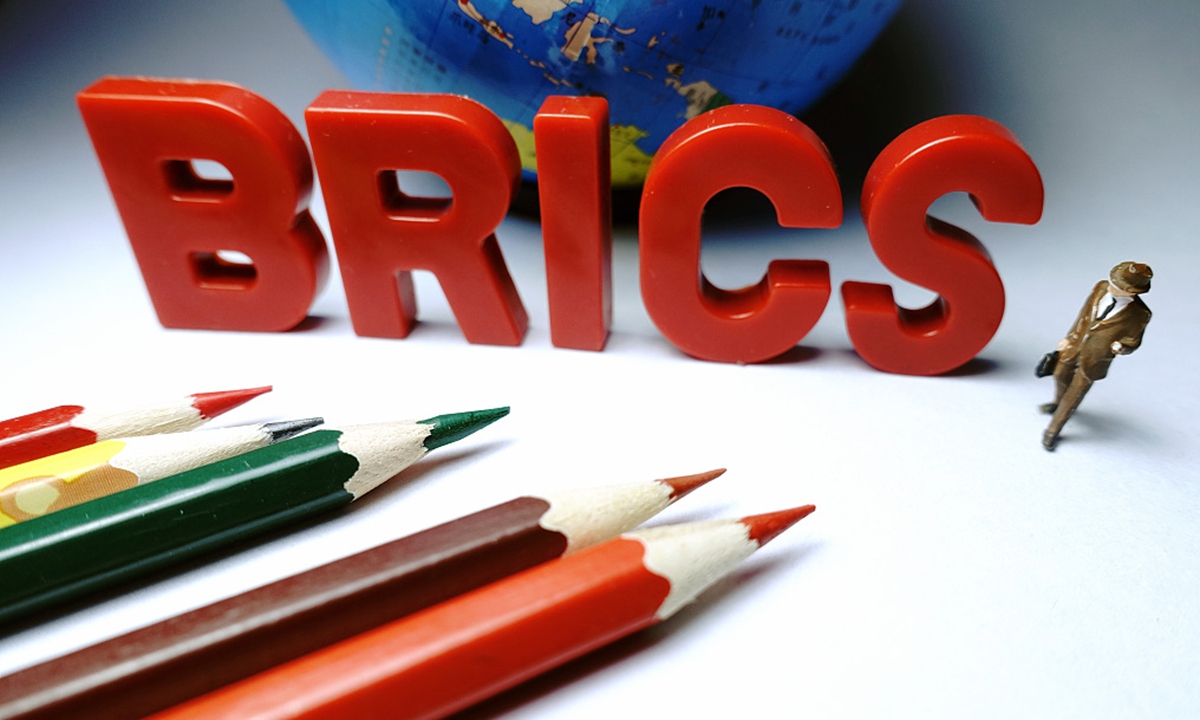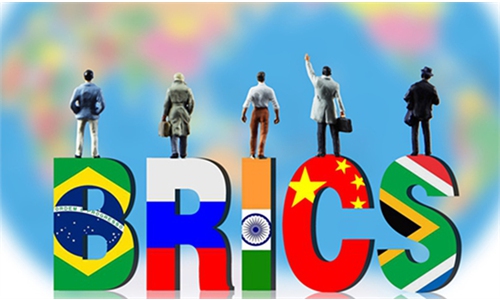
BRICS Photo: VCG
Ahead of the 14th BRICS summit in Beijing, China's top think tank released a report on Tuesday on the results the BRICS has achieved in the past and its development expectations, clarifying some misconceptions about the block.
The report summarizes the pragmatic cooperation results achieved by BRICS countries in various fields, including mechanism building, trade, financial and political security and people-to-people exchanges, putting to rest the theory that BRICS is collapsing.
The report release titled BRICS: A New Future for Global Development and the following symposium, organized by the Chongyang Institute for Financial Studies of the Renmin University of China (RDCY), took place on Tuesday afternoon in Beijing. The report was presented by Wang Wen, Executive Dean of the RDCY.
The report clarifies with concrete data several common international misconceptions and rumors about the BRICS, including that the block will collapse rapidly, that China occupies a dominant position in the BRICS, and that it excludes other countries.
The latest report from the International Monetary Fund (IMF) shows that economic growth in 2022 and 2023 is expected to be 4.4 and 5.1 percent in China and 8.2 and 6.9 percent in India, substantially higher than the expected growth rates of 3.3 percent and 2.4 percent in developed countries. Contrary to Russia's economic recession caused by geopolitical conflicts and sanctions, South Africa and Brazil are expected to achieve positive growth, Wang said citing data from the report.
The report argues that the BRICS countries have always been and will be the new engine of world economic growth.
"Ten years on, the total economic output of the BRICS countries has doubled in the world economy. IMF data shows that since the establishment of the BRICS, the member countries have contributed more than 50 percent to world economic growth and developing countries, with the BRICS countries at the core, have contributed more than 70 percent to world economic growth, much higher than the G7," Wang said.
He also pointed out that in 2021, BRICS countries achieved an economic growth rate of 7.6 percent, much higher than the world average of 5.5 percent. In 2021, the trade volume between BRICS countries increased by 300 percent compared to 2006, becoming the engine leading the world economic recovery and in fact economic growth.
The report also highlights that the BRICS mechanism has created two "firsts" in human history. This is the first time in human history that non-Western, non-developed countries have taken the lead and participated in a multilateral mechanism of large nations. The BRICS also marks the first time that the collective emergence of major powers is aimed at the goal of "peace and cooperation."
When previous superpowers followed hegemony and war, the BRICS countries rose with a clear agenda to seek "peace and cooperation," which is the greatest contribution to international relations and human development, Wang said.
Experts and scholars from Brazil, Russia, India, and South Africa joined the discussion following the release of the report. The scholars acknowledged the role played by the BRICS, as well as organizations such as the Shanghai Cooperation Organization, that promote global South-South cooperation and refuted some conspiracy theories from the West about such organizations. It is expected that the BRICS will attract more countries to join, they said.

